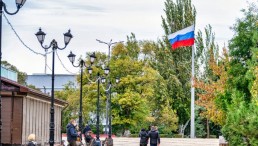A team from the University of Illinois Chicago worked to develop a "Swiss Army Knife" catalyst - made up of ten different elements aside from Oxygen that helps natural gas burn cleaner.
Led by Reza Shahbazian-Yassar, a mechanical and industrial engineering professor at UIC, the swiss army knife facilitates a lower combustion temperature of methane by down to half of the original temperature down to 600 to 700 Kelvin from over 1400 Kelvin. Details of their study are published in the journal Nature Catalysis, January 11.
RELATED ARTICLE: Enormous Methane Reservoir Discovered Under the Sea
Limitations for Multi-Element Nanocatalysts
In the abstract for their published report, researchers recognize the wide attention garnered by oxide nanoparticles in the fields of catalysis and energy. However, existing oxide compounds remain limited to a few cations because of the increasing intrinsic complexity in adding more nanometer-scale elements.
Shahbazian-Yassar and his colleagues, in a previously-published study, have demonstrated a method for creating a multi-element nanoparticle catalyst. Known as high entropy alloys, the method involves a process known as a shock-wave technique, where they "shock" metal salt-covered carbon nanofibers and then subject the substance into a rapid quenching step. With this, they were able to create a nanoparticle that contains as many as eight different elements. Prior to this effort, researchers in materials science are commonly limited to three elements because of their differing intrinsic qualities and increasing risks of collapsing instead of binding together.
They proposed a two-step carbothermal shock (CTS) method that uses flash heating and cooling of metal precursors to create the high entropy alloy nanoparticles that contain eight different metallic elements.
Denide Oxide Nanoparticles for Methane Combustion Stability
With help from the state-of-the-art real-time, high-temp electron microscopy system at UIC, the research team demonstrated that a denary (made up of ten components) oxide nanoparticle remains highly stable at temperatures of up to 1,073 Kelvins, and the ten elements were found to exhibit even distribution across the nanoparticle - in a single, solid-state crystalline form.
The new swiss army knife catalyst is a metal oxide alloy with different transition metals, rare-earth elements, and noble metals plus oxygen.
"It is almost impossible to maintain a perfect mix of these elements in a solid phase due to the differences in atomic radius, crystal structure, oxidation potential, and electronic properties of the elements," explains Zhennan Huang, co-first author in the study and a Ph.D. student in Shahbazi an-Yasar's lab. "But we were able to show that this is possible."
Shahbazian-Yassar ads that among the different multi-element alloys they tested out, the ten elements were the most effective in reducing methane's combustion point. Additionally, those elements also exhibited the greatest stability at the testing temperatures.
Using this new swiss army knife catalyst, researchers believe that it could be used to reduce the harmful greenhouse gases emitted by burning natural gas in different applications - from households to power plants and even in cars fueled by compressed natural gas.
RELATED ARTICLE: Researchers Report Progress on Greener, More Sustainable Hydrogen Extraction from Water
Check out more news and information on Materials Science on Science Times.













![Earth's Quasi-Moon Kamo‘oalewa Could Originate From Lunar Surface Not Asteroid Belt [Study]](https://1721181113.rsc.cdn77.org/data/thumbs/full/53275/258/146/50/40/earths-quasi-moon-kamo-oalewa-could-originate-from-lunar-surface-not-asteroid-belt-study.png)
